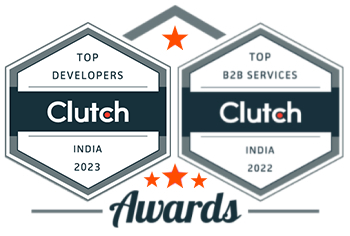Home Blog Website Development Choosing a Content Management System – 7 Steps to Follow
Choosing a Content Management System – 7 Steps to Follow
- 21 Jun / 2011
- 2,514 views
Content Management Systems today are more than just content publishers. They manage your workflow by conceiving, editing and publishing content, helping developers and designers customize the functionality and look of websites. Evaluating CMS can be tough because there are several of them to choose from. This article gives you 7 characteristics of a good CMS. The following points will help you decide what CMS is right for you.
1. Intuitiveness – The Graphical User Interface (GUI) of your CMS should be devoid of complicated options and be easy to understand and administer. A good CMS interface will allow creating and managing your content quickly and efficiently.
When choosing a CMS, take a look at it from the user’s perspective. Is somebody who is not tech-savvy able to use the content management system? The purpose of a CMS is to empower its users. Without them being able to use it, there is little point in having one at all.
2. Ease of Customization – You should not have to be obligated to use a CMS design template. A good CMS solution will allow you to customize your own design without too much hassle. A CMS which forces you to use an unalterable design template strips you of creativity and makes your website design look like everybody else’s.
WordPress, Jhoomla and Expression Engine are popular CMS solutions that offer customizations on templates.
3. Extensibility – Plugins or modules enhance your site’s usability. Check if your CMS allows you to incorporate helpful site features by extending default configuration with plugins.
In case you need to write your own extensions, choose a CMS with a good API (Application Programming Interface). Ideally, the CMS you are considering should already have a commendable list of plugins, even if you don’t need them right away.
4. Non-tech Friendly – If you prefer a more design-oriented CMS, ensure you select one which does not require extensive programming knowledge to publish or maintain content. CMS’s with WYSIWYG editors allows you to edit content without the need for code. A WYSIWYG editor is easier and takes less time than HTML editors.
However, if you have a complex site, you may require CMS that will let you edit .php, .css, or .html files without third-party code editors.
5. Optimized for Performance and Speed – How fast your pages load and makes a connection to the server is important. A bulky CMS will increase your load time and drive customers away.
YSLow is a simply and free tool which allows you to evaluate your CMS’s page response time. Install it and check how fast your web pages load.
6. Security – Always select a CMS that allows you to install specific plugins or modules to increase your site’s security and protect your content.
There are CMS’s which help you edit files/permissions through plugins installation to increase security levels. You can also choose CMS’s which allow assigning of different username and password to different users.
7. Documentation – A CMS with good documentation works like a dream. A CMS community also helps tremendously by allowing users to interact among themselves, discuss issues and ideas.
A CMS that has been developed under best web standards and practices will ultimately benefit your site in the long run, helping you to achieve clean codes, cross-browser compatibility, ease of maintenance, and much more.
1 comment
Leave a Reply

-
1000+
Happy
Clients -
25+
Countries
Served -
19+
Years of
Trust









As you have mentioned in the blog the content management system is the important factor. Following these steps will give a good result.